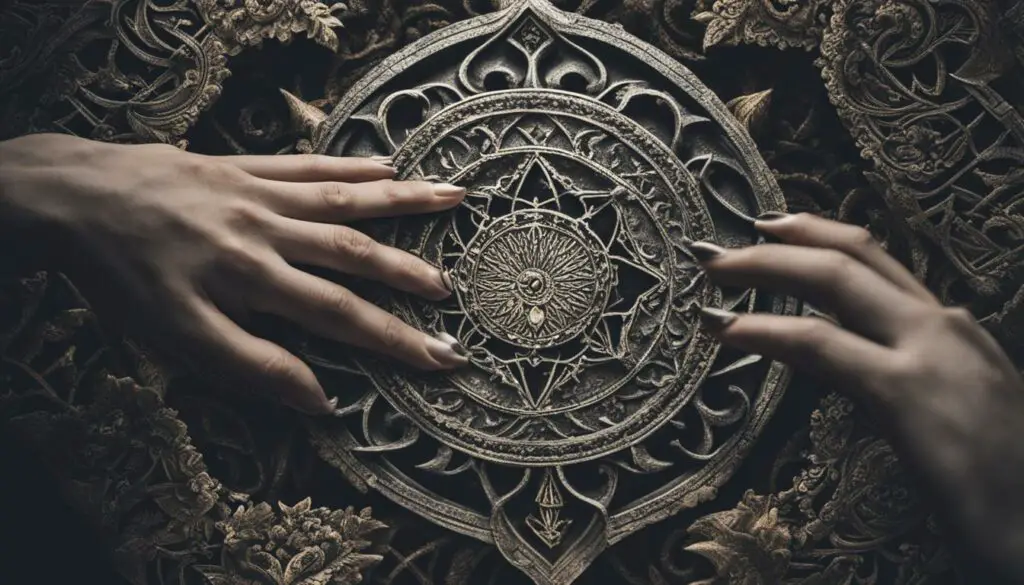Last Updated on October 30, 2023 by Francis
Have you ever experienced a sudden twitch in your right hand? If so, you may have heard of the superstitions surrounding this phenomenon. Right hand twitching superstition is prevalent in many cultures, but what does it really mean?
In this article, we will explore the origins and interpretations of right hand twitching across various cultures. We aim to debunk any misconceptions and provide accurate information about this curious phenomenon.
Contents
Key Takeaways:
- Right hand twitching superstition is prevalent in many cultures.
- There are different interpretations and beliefs surrounding the phenomenon.
- Cultural differences in superstitions exist.
- There are scientific explanations for hand twitching.
- It’s important to approach superstitions with a critical mindset.
Understanding Hand Twitching Beliefs
Hand twitching has been the subject of various beliefs and superstitions throughout history and across different cultures. In this section, we will explore some of the most common hand twitching beliefs and superstitions, focusing specifically on the right hand.
One of the most widespread beliefs is that right hand twitching is a sign of impending financial gain. This superstition is prevalent in many cultures, including Western and Indian traditions. Some people also believe that right hand twitching can indicate that a visitor is coming to their home or that they will receive good news.
However, not all beliefs surrounding right hand twitching are positive. In some cultures, it is believed that if the right hand twitches, it is a sign of an impending illness or bad luck. For example, in some Latin American and African traditions, right hand twitching is seen as a forewarning of death or tragedy.
Superstitions about right hand twitching also vary depending on the time of day. In some cultures, if the right hand twitches during the day, it is a sign that the individual will have unexpected expenses or lose money. On the other hand, if the right hand twitches at night, it is believed that the individual will receive money or gifts.
Comparing Hand Twitching Beliefs Across Cultures
To gain a deeper understanding of hand twitching beliefs, we have created a table below that compares some of the most common interpretations of right hand twitching across different cultures. It is essential to note that these beliefs are not universal, and they may differ even within the same culture or region.
| Culture/Region | Belief about Right Hand Twitching |
|---|---|
| Western Traditions | Sign of impending financial gain |
| Indian Traditions | Sign of incoming money or visitors |
| Mexican Traditions | Forewarning of death or tragedy |
| African Traditions | Sign of bad luck or impending illness |
| Chinese Traditions | Sign of incoming wealth |
It is apparent from this table that different cultures have varying interpretations of hand twitching. These beliefs and superstitions have been passed down through generations and remain prevalent today, despite the lack of scientific evidence supporting them.
In the next section, we will explore the role of hand twitching in folklore and cultural traditions, delving further into the symbolic meanings attached to this phenomenon.

Hand Twitching in Folklore and Culture
In folkloric traditions, hand twitching is often associated with superstitions and omens. Depending on the culture, it may be interpreted as a sign of good fortune or bad luck. For instance, in some African cultures, right hand twitching is believed to foreshadow a visit from an unexpected guest. Alternatively, in Japanese superstition, a twitching right eyelid means that someone is speaking ill of you, while left eyelid twitching is considered a sign of good luck.
| Culture | Interpretation of Hand Twitching |
|---|---|
| Chinese | Right hand twitching may signify the arrival of good fortune, while left hand twitching may signal a financial loss. |
| Indian | Right hand twitching is said to be a sign of unexpected gains, while left hand twitching may indicate money leaving one’s pocket. |
| Italian | A twitching right hand may suggest monetary gains, while left hand twitching may represent an impending bill or expense. |
In Mexican folklore, hand twitching is believed to reveal the gender of an unborn child. If a pregnant woman’s right hand twitches, it is said that she will give birth to a baby boy. Conversely, if her left hand twitches, she will have a baby girl. Similarly, in some Western cultures, a twitching right eye is seen as a positive omen, whereas a twitching left eye may be seen as a warning sign of misfortune.
From these examples, it is clear that hand twitching holds immense significance in different cultures worldwide. It is an intriguing phenomenon that highlights the richness and diversity of human superstition and folklore.

Interpreting Hand Twitching Signs
Hand twitching can be unsettling, but in many cultures, it is seen as an omen of good fortune or a sign of impending change. Interpreting hand twitching signs can be tricky, as the meaning can vary depending on the individual and their cultural background.
One common interpretation of hand twitching is that it signifies that money is on the way. In some cultures, the right hand is associated with giving and the left hand with receiving, so a twitch in the right hand is said to indicate that wealth is coming your way. However, in other cultures, a twitch in the left hand is believed to indicate incoming money.
Another interpretation of hand twitching is that it is a sign of impending travel. The direction of the twitch is said to determine the destination of the journey. For example, a twitch in the thumb is believed to indicate travel by land, while a twitch in the middle finger represents air travel.
| Type of Twitch | Interpretation |
|---|---|
| Thumb | Travel by land |
| Index Finger | Receive news or a message |
| Middle Finger | Air travel |
| Ring Finger | A wedding or union |
| Pinky Finger | Receive a gift or unexpected good news |
Although these interpretations may seem specific, it is important to remember that they are not universal. Cultural differences in hand twitching superstitions can lead to variations in interpretation and meaning. Additionally, hand twitching can also have medical causes, so it is important to rule out any underlying health conditions before attributing it to superstition.
Ultimately, the meaning of right hand twitching and other hand twitching signs is largely open to interpretation, and individuals should approach it with a healthy dose of skepticism. However, for those who do believe in the superstitions surrounding hand twitching, it can be a fascinating and intriguing phenomenon.
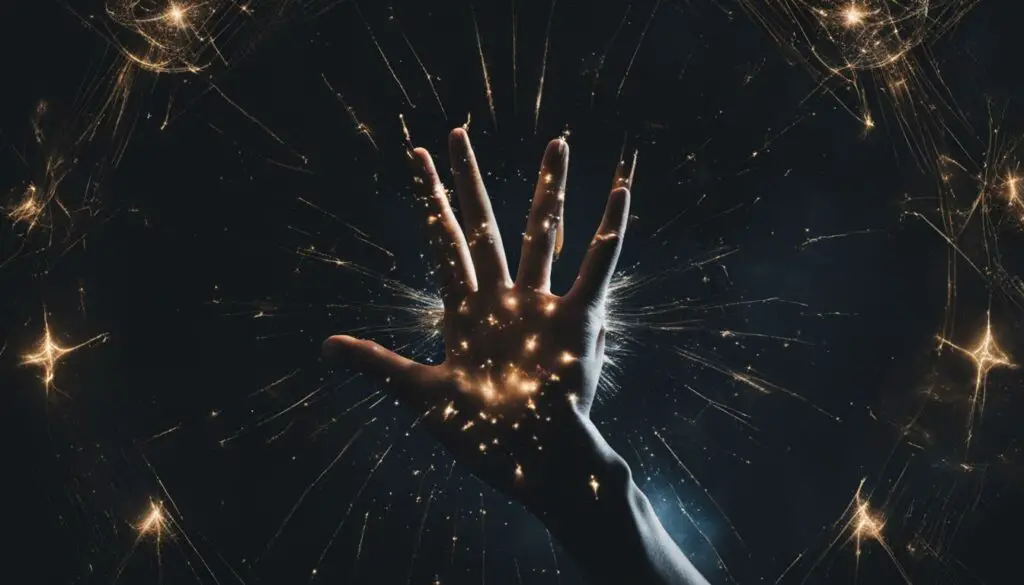
The Spiritual Significance of Right Hand Twitching
While hand twitching is often attributed to physical causes, there are also spiritual interpretations that have been passed down through generations. In many cultures, the right hand is believed to be the hand of action and the left hand the hand of receiving. Therefore, right hand twitching is often seen as a sign of forthcoming action or accomplishment, while left hand twitching is associated with incoming energy.
In spiritual and metaphysical contexts, right hand twitching is sometimes viewed as a message from a higher power or an indication of a spiritual awakening. Some believe it is a sign of increased energy flow or a shifting of vibrations, indicating a new phase of life or a breakthrough in one’s spiritual journey.
While there is no scientific evidence to support these beliefs, they hold significant meaning for those who subscribe to them. In some cases, individuals may use their hand twitching experiences as a guide or a source of comfort during difficult times.
The Role of Chakras in Hand Twitching
In Eastern spiritual traditions, the body is believed to contain seven main chakras, or energy centers, that are responsible for physical, emotional, and spiritual wellbeing. The hands are associated with the heart and throat chakras, which represent love, communication, and creativity.
Some believe that hand twitching can be a sign of a blockage or imbalance in these chakras, indicating a need for healing or spiritual work. Alternatively, it can be seen as a sign of energy movement and an indication that the chakras are opening up.
The Power of Intuition
Another spiritual interpretation of hand twitching is related to intuition and psychic abilities. Some believe that right hand twitching is a sign that one’s psychic abilities are developing, while left hand twitching is a sign of increased intuition.
This belief is based on the idea that the right side of the body is associated with logic and reasoning, while the left side is associated with intuition and creativity. Therefore, right hand twitching is viewed as a sign of a balance between these two aspects of the self.
Overall, the spiritual significance of right hand twitching varies across different cultures and belief systems. While there is no scientific evidence to support these interpretations, they hold important meaning for those who adhere to them and can serve as a source of guidance and comfort.

Cultural Differences in Hand Twitching Superstitions
Hand twitching superstitions vary widely across different cultures, with each community ascribing unique meanings to this phenomenon. Here, we explore some of the most fascinating cultural interpretations of hand twitching.
Asia
In many Asian cultures, right hand twitching is considered a positive omen. For example, in Indian culture, it is believed to indicate upcoming financial gain, while in Japanese culture, it signifies an important visitor is on the way.
On the other hand, left hand twitching is considered negative and often associated with financial loss or impending bad luck. In Chinese culture, hand twitching is believed to be linked to the body’s energy flow, with right hand twitching indicating an inflow of money and left hand twitching representing an outflow.
Africa
Hand twitching superstitions in Africa tend to be more varied and localized, with different tribes and regions ascribing distinct meanings to the phenomenon. For example, in Ghana, hand twitching is believed to be a symptom of spiritual possession or an indication that a deceased ancestor is trying to communicate with the living.
Meanwhile, in Kenya, hand twitching is viewed as a sign of a coming journey or adventure, while in parts of Nigeria, it is seen as an indication of future wealth and success.
Europe
Hand twitching superstitions in Europe are similarly diverse, with different cultures holding different beliefs about the phenomenon. In Portuguese culture, for example, right hand twitching is believed to be a sign of impending financial gain, while in Spain, it is thought to signify a loved one is thinking about you.
In Italy, however, hand twitching is associated with negative outcomes. In particular, right eye twitching is believed to signify impending misfortune, while left eye twitching is thought to indicate a happy event on the horizon.

“Across different cultures and regions, hand twitching superstitions offer fascinating insights into the symbolic meanings attached to everyday occurrences. By examining these beliefs, we can better understand the diversity of human experience and the ways in which we make sense of the world around us.”
Debunking Common Misconceptions
There are many misconceptions surrounding hand twitching superstitions, some of which we will address here to clarify any confusion. First and foremost, it is important to note that hand twitching does not have any scientifically recognized supernatural significance. Any claims to the contrary are not grounded in evidence.
Another common misconception is that the superstition applies to both hands. However, in most cultures, it is only the right hand that is believed to hold any significance. This belief likely arose from the concept of the “right-hand man,” which connotes a trusted and valuable companion.
It is also important to note that the interpretation of hand twitching signs can vary widely across cultures and individuals. There is no one-size-fits-all meaning that can be applied to every twitch or movement.
“It is vital to approach hand twitching superstitions with a healthy dose of skepticism and critical thinking. Rather than immediately accepting any belief at face value, it is important to investigate the evidence and consider alternative explanations.”
Finally, it is crucial to recognize that hand twitching superstitions can be harmful, particularly when they are used to make decisions or judgments about oneself or others. These beliefs can perpetuate harmful stereotypes and prejudices, further marginalizing already marginalized groups.

As we explore the meaning and significance of hand twitching superstitions, it is important to keep these common misconceptions in mind. By doing so, we can approach this topic with a critical eye and gain a deeper understanding of the cultural and personal beliefs surrounding hand twitching.
Historical Origins of Hand Twitching Beliefs
The origins of hand twitching beliefs can be traced back to ancient civilizations, where people held strong superstitious beliefs about bodily signals and their interpretations. In many cultures, the right hand was considered more significant than the left, and any twitching or movement in this hand was thought to carry special meaning.
For example, in ancient Greek and Roman cultures, hand twitching was seen as an omen of good or bad luck, depending on which hand was affected. Similarly, in Indian culture, the right hand was considered a symbol of activity and power, and any twitching or movement in this hand was believed to signify an upcoming event related to these qualities.
As these beliefs were passed down through generations, they evolved and became intertwined with cultural and religious practices. In many cases, these superstitions reinforced existing power structures or social hierarchies, with the interpretations and meaning of hand twitching reinforcing certain belief systems.
Comparing Cultural Beliefs
As these beliefs spread across different regions and cultures, they developed unique interpretations and practices. For example, in Chinese culture, hand twitching is believed to be a sign of earning money or receiving good news. In contrast, in Mexican culture, hand twitching is seen as a sign of impending danger or a threatening presence.
| Culture | Interpretation |
|---|---|
| Japanese | Right hand twitching signifies a coming visitor or good news, while left hand twitching indicates a visitor who is unwelcome or bad news |
| Nigerian | Right hand twitching is seen as a sign of success and prosperity, while left hand twitching is viewed as a signal of coming financial loss |
| Sri Lankan | Right hand twitching is interpreted as a sign of good luck and upcoming financial gain, while left hand twitching is seen as a warning of financial trouble or loss |
These variations in interpretation reflect the unique cultural and historical context in which they emerged, highlighting the importance of understanding the cultural significance of hand twitching beliefs.
The Role of Religion
Religion has also played a significant role in shaping hand twitching beliefs over time. In many cases, these beliefs have been incorporated into religious practices or have religious significance attached to them.
For example, in Christian culture, hand twitching has been associated with the Holy Spirit and spiritual awakening. Similarly, in Hinduism, hand twitching is believed to be related to energy flow in the body, and is associated with the chakras.
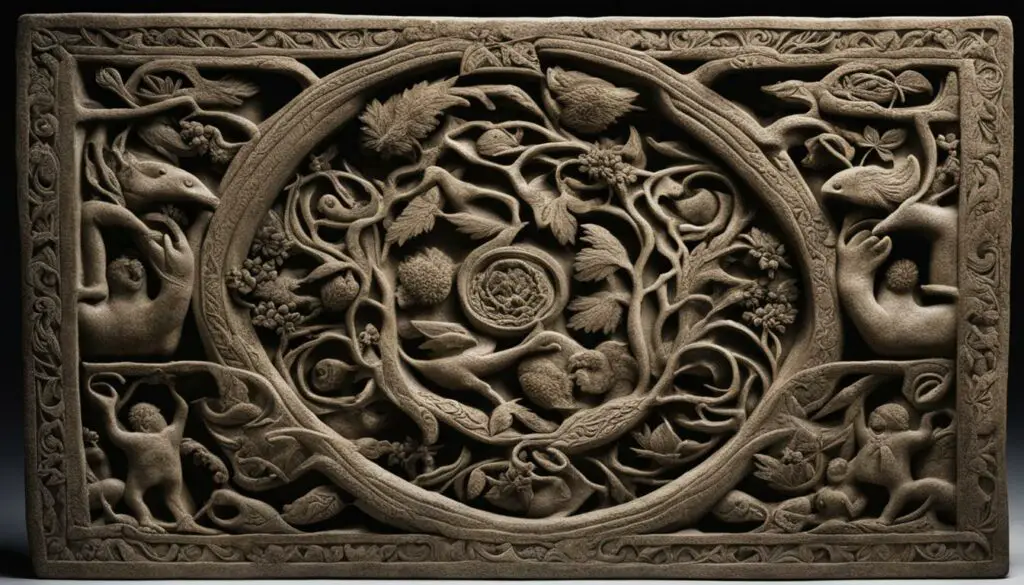
Understanding the historical origins of hand twitching beliefs can help us to better appreciate their significance and meaning in contemporary culture. While these beliefs may seem irrational to some, they are deeply rooted in cultural and religious traditions, and have evolved over time to reflect changing social and historical contexts.
Hand Twitching and Modern Society
Despite the advancements in science and technology, superstitions surrounding right hand twitching and other hand twitching omens continue to persist in modern society.
Many individuals still believe that hand twitching is a sign of good or bad luck, and some even use it to make decisions in their daily lives. For example, if the right hand twitches, it is believed to signal that money is coming, while left hand twitching is seen as a warning of impending financial loss.
This belief in hand twitching superstition may be attributed to the fact that it is a part of cultural tradition and folklore, passed down from generation to generation. However, with the rise of social media and the internet, these beliefs have also spread rapidly and gained new interpretations and meanings.
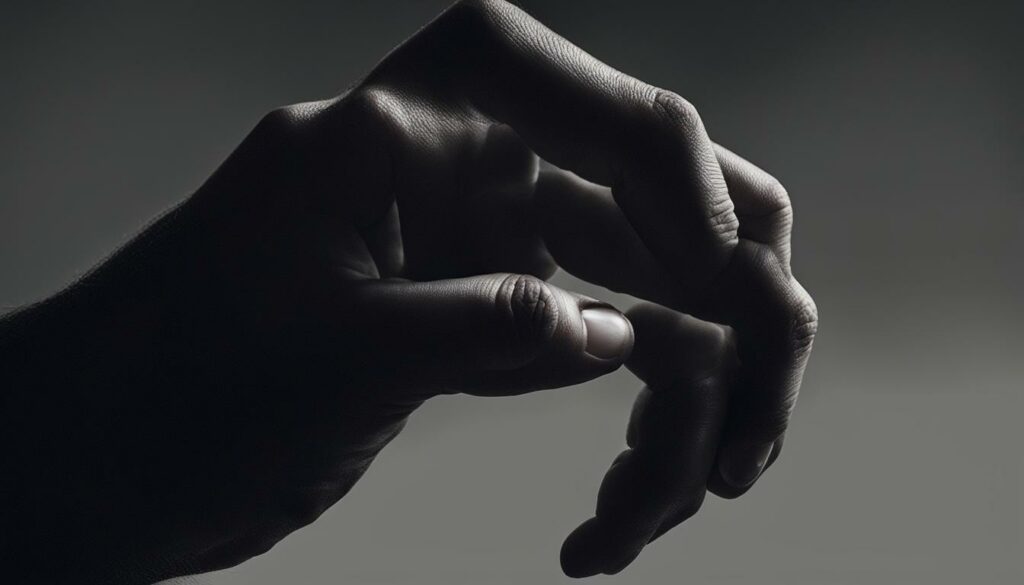
Many online forums and blogs discuss hand twitching omens and their significance in great detail, perpetuating these beliefs further. However, it is essential to approach these beliefs with a critical eye and not blindly follow superstitions.
While there may be no scientific basis for hand twitching omens, they can still hold personal significance for individuals. It is important to acknowledge and respect the cultural interpretations of hand twitching, but also to understand the rational explanations for this phenomenon.
Impacts on Mental Health
Believing in hand twitching superstitions can also have negative impacts on one’s mental health. Obsessive thoughts and compulsive behaviors related to these beliefs can lead to anxiety and stress.
To mitigate these effects, it is crucial to seek support from mental healthcare professionals and practice mindfulness and self-reflection.
In conclusion, while hand twitching superstitions may have cultural and personal significance, it is important to approach them with a rational and critical perspective. By acknowledging and respecting cultural traditions while also understanding the scientific explanations behind these beliefs, individuals can make informed decisions and improve their mental well-being.
Exploring Personal Experiences
Have you ever experienced right hand twitching and wondered about its meaning? Share your experiences and thoughts with us in the comments below. We welcome diverse perspectives and encourage respectful dialogue.
Some may view hand twitching as a simple physical occurrence, while others attribute deeper meanings to it. In certain cultures, hand twitching is considered a sign of good luck or a warning of impending danger.
For instance, in Turkey, a twitching right hand is believed to bring good fortune, while in India, it is seen as a bad omen, foretelling an upcoming quarrel. What about in your culture or personal experience?
Feel free to share your stories and beliefs. While there may be scientific explanations for hand twitching, personal experiences and cultural interpretations continue to shape our understanding of this phenomenon. Let’s explore together.
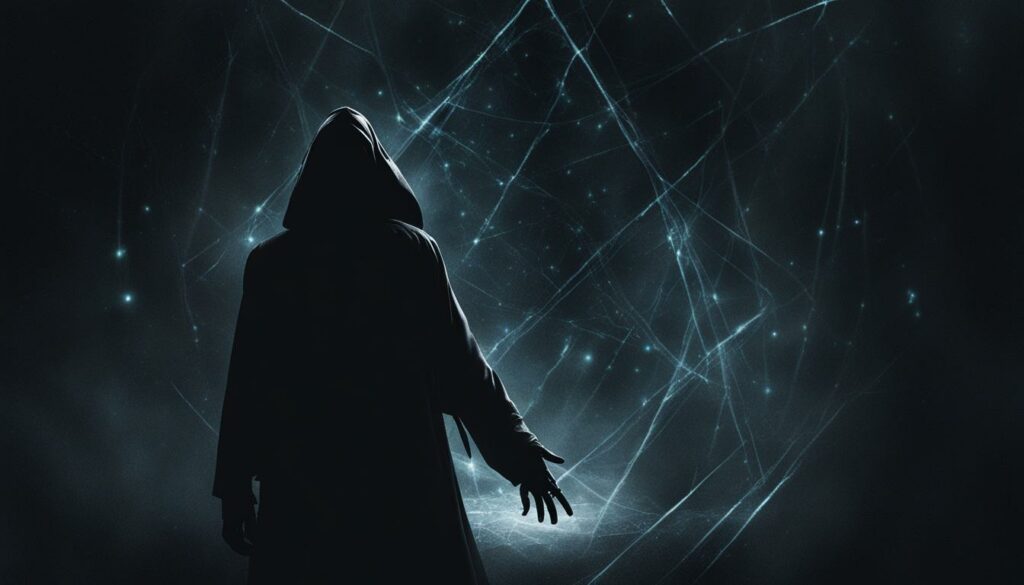
Scientific Explanations for Hand Twitching
While hand twitching is often associated with superstitions and mystical beliefs, there are scientific explanations behind this phenomenon. In most cases, hand twitching occurs due to involuntary muscle contractions or spasms. These spasms can be caused by a variety of factors, including:
- Stress and anxiety
- Fatigue
- Dehydration
- Low levels of potassium or calcium
- Medications or drug use
Other medical conditions can also cause hand twitching, such as neurological disorders and muscle diseases. If you experience frequent or persistent hand twitching, it is important to consult a healthcare professional to rule out any underlying health issues.
Despite the scientific explanations behind hand twitching, many people continue to attribute spiritual or metaphysical meaning to this phenomenon. In some cultures, hand twitching is still viewed as an omen or sign of impending fortune or misfortune.
“I always believed that when my right hand twitches, it’s a sign of good luck. I even bought a lottery ticket once after experiencing a twitch, and I won $100!” – Sarah, 34
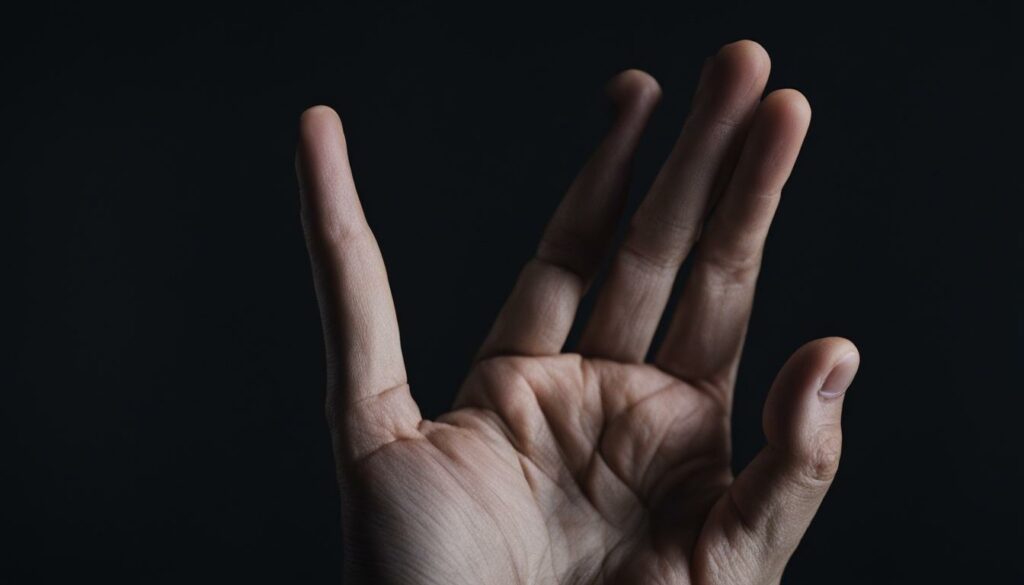
However, it is important to approach these beliefs with a critical eye and consider the scientific explanations behind hand twitching. By understanding the physical causes behind this phenomenon, individuals can make informed decisions and avoid falling prey to unfounded superstitions or misconceptions.
Conclusion
After exploring the various beliefs and superstitions surrounding hand twitching, it’s important to take a step back and approach the phenomenon with a rational perspective. While cultural interpretations and personal experiences may lead individuals to believe in hand twitching omens, it’s important to consider scientific explanations as well.
As we’ve discussed, hand twitching can be caused by various physiological and neurological factors, and there is no evidence to support the idea that right hand twitching holds any supernatural significance. It’s essential to debunk common misconceptions and approach superstitions with critical thinking.
Overall, understanding the cultural significance of hand twitching can provide insights into the human condition and the role of symbolism in different societies. However, it’s important not to let superstitions and unfounded claims overshadow rational thinking and scientific explanations.
Takeaway:
So the next time your right hand twitches, don’t be quick to assign a supernatural meaning to it. Consider the possibility of it being a random physical occurrence and the reality of scientific explanations. Hand twitching superstition debunked.
FAQ
What is the superstition surrounding right hand twitching?
The superstition surrounding right hand twitching varies across different cultures. In some beliefs, it is seen as a sign of impending financial gain or unexpected money. Others interpret it as a signal of upcoming social interactions or a visit from someone special.
Is there any scientific basis behind hand twitching superstitions?
Hand twitching superstitions are predominantly rooted in folklore and cultural beliefs rather than scientific evidence. Hand twitching can be attributed to various physiological and neurological factors, such as muscle fatigue, stress, or nerve irritation.
Are hand twitching beliefs the same in every culture?
No, hand twitching beliefs differ across cultures. Some cultures consider right hand twitching to be auspicious, while others view it as a negative omen. The interpretations and symbolic meanings attached to hand twitching can also vary widely.
How can I interpret my own hand twitching experiences?
Interpreting hand twitching experiences depends on personal beliefs and cultural background. It is essential to consider your own intuition and introspection while also being mindful of the broader cultural context. Meditation or seeking guidance from spiritual practitioners can also provide insights.
Can hand twitching be explained solely by scientific reasons?
Yes, hand twitching can often be attributed to physiological or neurological factors, such as muscle spasms or nerve activity. However, it’s important to recognize that some individuals may find personal meaning or spiritual significance in their hand twitching experiences.
Can hand twitching be a symptom of a medical condition?
In some cases, hand twitching can be a symptom of an underlying medical condition. If you are concerned about your hand twitching or experience persistent twitching along with other symptoms, it is advisable to consult a healthcare professional for an accurate diagnosis.
How can I differentiate between superstition and genuine meaning in hand twitching?
Differentiating between superstition and genuine meaning in hand twitching can be subjective. It is important to approach it with an open mind and consider both cultural beliefs and scientific explanations. Reflecting on personal experiences and seeking diverse perspectives can contribute to a more holistic understanding.
Are there any specific rituals associated with hand twitching?
Yes, some cultures have specific rituals associated with hand twitching. These rituals may involve prayer, lighting candles, or performing certain actions to enhance the perceived positive outcomes or ward off potential negative effects of hand twitching.
Can I prevent or control hand twitching?
Preventing or controlling hand twitching is challenging, as it is often involuntary and can be influenced by various factors like stress or physical exertion. However, maintaining overall physical and mental well-being through regular exercise, stress management, and adequate rest may help reduce the frequency or intensity of hand twitching.
Should I be concerned about my hand twitching?
In most cases, occasional hand twitching is harmless and does not require concern. However, if you experience frequent or persistent hand twitching accompanied by other concerning symptoms, it is recommended to consult a healthcare professional for further evaluation.
